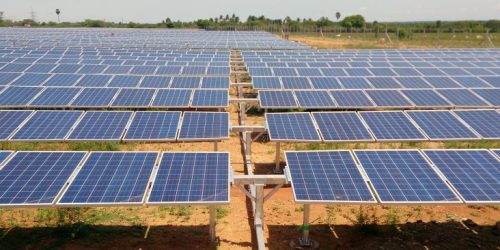LAHORE: Over 93000 electricity connections with annual bill of Rs 30 billion have propelled the Punjab government to opt for solarization as the way forward in order to reduce electricity bills and improve the environment, said provincial energy department sources.
According to the sources, 13 public sector universities with 26 megawatt potential have initiated solarization projects. The Punjab government is set to functionalize 2.5 megawatt solar plant by March 2021 at Islamia University Bahawalpur, they added.
Already, they said 8000 public sector schools in Punjab have been converted to solar. The Punjab government has also requested Federal Minister for Energy Omar Ayub Khan to allow single phase net metering for these solarized schools. A notification is expected soon, the sources added. It may be noted that the energy department has successfully established 15 kW solar power plant at Model Children Home, Gujranwala, with estimated annual production capacity of 21000 units and financial saving of Rs 0.44 million.
The Punjab government is working in line with sustainable development goals and its vision is focused on sustainable energy. To date, the Quaid-e-Azam Solar Power Plant at Bahawalpur, the world’s largest solar part, has contributed to 875699 metric ton reduction in Green House Gas (GHG) emissions. Energy sector experts believe that a plant of this size would be enough to power around 320,000 homes.
The energy department sources said the Punjab government has already achieved a milestone by signing Letter of Support with Zhenfa fetching private investment worth Rs10 billion and Pakistan’s lowest solar tariff of 3.7390 cents.
Pakistan is known for the highest values of insulation throughout the world with eight to nine hours of sunshine per day, ideal climatic conditions for solar power generation. At present, the country has solar plants almost in every part of the country. The local private sector companies have inked joint ventures with Chinese companies under the assistance from the International Renewable Energy Agency and Japan International Cooperation Agency.
Besides the public sector, the private sector entities are also active in installing solar power plants across the country. In particular, the private sector education institutions are showing serious interest and installing small scale solar plants to meet their day-to-day needs. Especially, the everyday increase in power tariff has pushed the public as well as private sector entities to switch over to solar options.







